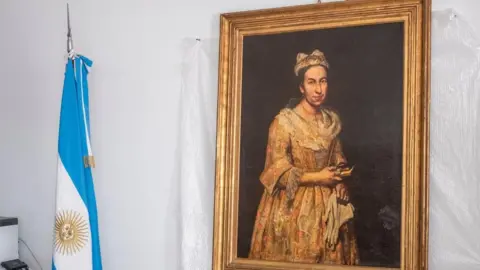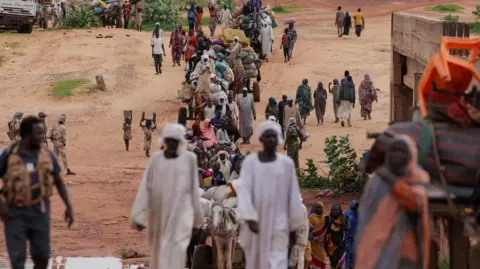PHILADELPHIA (AP) — In the 1930s, archaeologists exploring ancient civilizations in northern Iraq formed friendships with the Yazidi community, capturing their daily lives in a collection of photographs that would later become a vital record of a culture under threat. Rediscovered after the tragic onslaught by the Islamic State, these black-and-white images, which also include a striking photo of a Yazidi shrine, reflect the rich heritage of one of Iraq's oldest religious minorities.
The images were found among 2,000 photographs preserved at the University of Pennsylvania Museum of Archaeology and Anthropology. In the wake of IS extremists’ devastation, a renewed scholarly interest emerged, led by Penn doctoral student Marc Marin Webb, who uncovered nearly 300 photographs to create a visual archive that honors the Yazidi people. The United Nations has classified the targeted attacks on Yazidis as genocide, resulting in thousands of deaths and the destruction of vital cultural landmarks.
Among those moved by the rediscovery is Ansam Basher, a Yazidi teacher in England, who expressed her profound emotions upon seeing wedding photos of her grandparents from the early 1930s. Having lost many personal memories and artifacts during the IS assault on her hometown Bashiqa, she welcomed the revival of these family relics, commenting, “This is something I’m really happy about.”
The cache documents Yazidi people, places, and traditions, all of which IS sought to obliterate. Marin Webb, with project partner Nathaniel Brunt, aims to share the collection both through physical exhibits in the region and digitally with the Yazidi diaspora. These exhibits, first unveiled during Yazidi New Year in April, serve as a stunning act of cultural resistance against the destruction faced by the community.
As the photos showcase Yazidis in various aspects of life, from weddings to religious gatherings, they invite viewers to appreciate the community as they lived, rather than solely through the lens of violence directed against them. The rediscovery also underscores a pressing need to counter the misconceptions and stigmas surrounding Yazidis, particularly misconceptions related to their beliefs.
Marin Webb remains optimistic as the archive not only preserves history but also fosters community connection and renewal among scattered Yazidis worldwide. Reflecting on the initiative, Basher shared, “We’ve been suffering a lot, but we still have some history.”
The images were found among 2,000 photographs preserved at the University of Pennsylvania Museum of Archaeology and Anthropology. In the wake of IS extremists’ devastation, a renewed scholarly interest emerged, led by Penn doctoral student Marc Marin Webb, who uncovered nearly 300 photographs to create a visual archive that honors the Yazidi people. The United Nations has classified the targeted attacks on Yazidis as genocide, resulting in thousands of deaths and the destruction of vital cultural landmarks.
Among those moved by the rediscovery is Ansam Basher, a Yazidi teacher in England, who expressed her profound emotions upon seeing wedding photos of her grandparents from the early 1930s. Having lost many personal memories and artifacts during the IS assault on her hometown Bashiqa, she welcomed the revival of these family relics, commenting, “This is something I’m really happy about.”
The cache documents Yazidi people, places, and traditions, all of which IS sought to obliterate. Marin Webb, with project partner Nathaniel Brunt, aims to share the collection both through physical exhibits in the region and digitally with the Yazidi diaspora. These exhibits, first unveiled during Yazidi New Year in April, serve as a stunning act of cultural resistance against the destruction faced by the community.
As the photos showcase Yazidis in various aspects of life, from weddings to religious gatherings, they invite viewers to appreciate the community as they lived, rather than solely through the lens of violence directed against them. The rediscovery also underscores a pressing need to counter the misconceptions and stigmas surrounding Yazidis, particularly misconceptions related to their beliefs.
Marin Webb remains optimistic as the archive not only preserves history but also fosters community connection and renewal among scattered Yazidis worldwide. Reflecting on the initiative, Basher shared, “We’ve been suffering a lot, but we still have some history.”





















